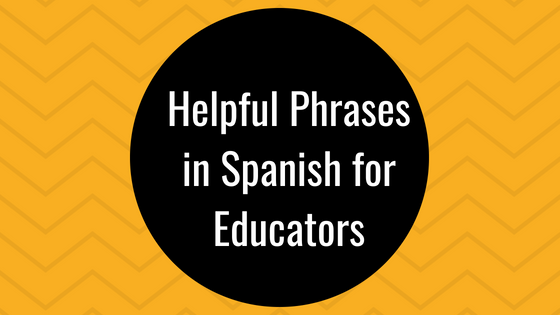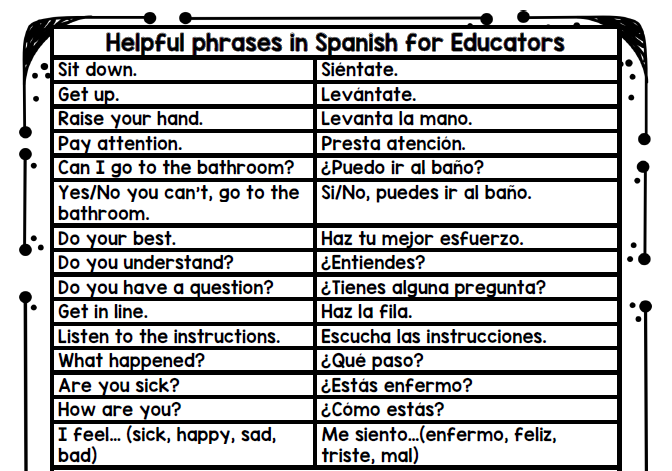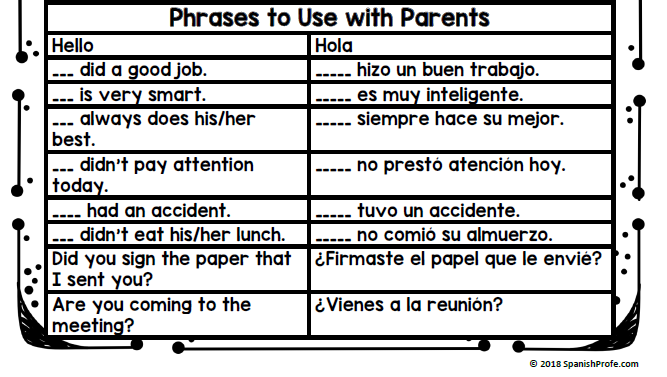As the new school year approaches you may find that you have some new Spanish speaking students in your class. Problem is your Spanish from high school is a little rusty and your new students might not have the language skills they need to understand important things about the daily routine or communicate their basic needs.
I’ve seen other monolingual teachers and administrators in my school get stuck as well. They often need to communicate with a Spanish speaking student or family and there is no translator or Bilingual or Spanish teacher available to help. No worries! I’ve got you covered with some phrases, sentences and questions you could use with Spanish speaking students or parents when you do not have another place to turn.
First, is a list of common Spanish phrases that a teacher might need to use in the classroom or hear students say in the classroom. Most are phrases that you could use in the Spanish to get a student to do something; some others are to use if a child is sick or needs help.
Next, is a list of common Spanish phrases that you may need to need (or want) to use with Spanish speaking parents. These are phrases that you can use to compliment a student’s work or behavior or question parents about papers or a meeting.
Click here to download the entire list of common phrases in Spanish for educators that are listed above in PDF form.
How to use this list of common Spanish phrases for educators:
- Print it off and keep it near your desk or door where you can refer to it if something comes up.
- Bookmark this page, so you can come back to it later.
- Give it to someone at your school that might find it useful. (Counselor, Administrator, Aide, etc.)
- If you do not know how to pronounce these Spanish phrases but you really need to communicate something to a parent (or older student) you could always point at the phrase in Spanish that is on this sheet.
I hope this list of phrases can be helpful to you, other staff or administrators in your school. Sometimes knowing just the right phrase in someone’s native language can help them feel more comfortable or help you out of a possible misunderstanding.












